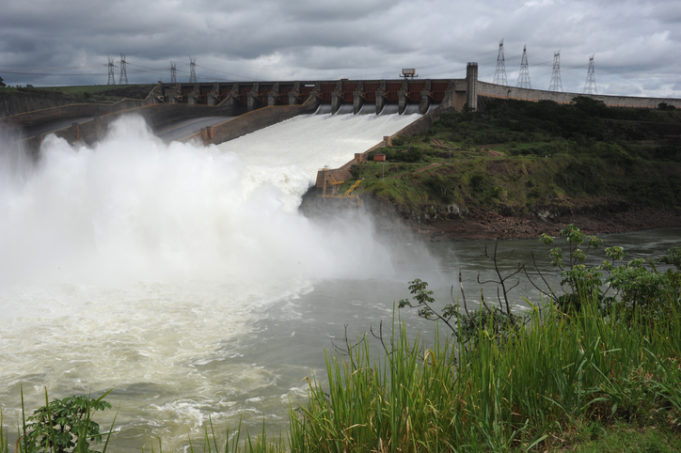Editor’s note: Water fights in Texas and elsewhere in the United States are gettting serious, but the furor building in Africa provides a taste of the water wars — possibly actual shooting wars — that may become a prominent feature of this century.
A familiar legend says that Egypt has privately warned all the governments upstream on the Nile that it will start bombing if they dam the river without its permission. The truth of that story is about to be tested.
Last month Ethiopia started diverting the waters of the Blue Nile in order to build the Great Ethiopian Renaissance Dam, a $4.7 billion, 6,000-megawatt hydroelectric project that is the key to the country’s plan to become Africa’s largest exporter of power. Egypt instantly objected. “We have a strong legal case to insist that our share of the Nile water is preserved,” said a government source — but he didn’t mention bombers.
Egypt depends utterly on the Nile’s water to grow its food. Even now there is not enough (it already imports almost 40 percent of its food), and Egypt’s population is still growing fast. If the amount of water coming down the Nile diminishes appreciably, Egyptians will go hungry.
A 1929 treaty gave 90 percent of the Nile’s water to Egypt and Sudan, even though all the water in the river starts as rain in the upstream countries: Ethiopia, Uganda, Kenya and Tanzania. It seemed fair at the time: The 20 million people in the downstream countries depended heavily on irrigation, while the 27 million in the upstream countries had plenty of rain-fed land and hardly irrigated at all.
Things have changed. There are now six times as many people in the Arabic-speaking countries downstream and eight times as many people in the African countries upstream. Egypt is using all of its share, and the upstream countries are starting to use the water for irrigation too.
The Ethiopian project is the first real test of Egypt’s tolerance for upstream dam-building. When full, the reservoir will hold 63 million cubic meters of water; Egypt’s annual share of the Nile’s water is 55.5 million cubic meters. And this dam is just the start. Ethiopia plans to spend a total of $12 billion on dams on the Blue Nile for electricity and irrigation, and Uganda is negotiating with China for financing for a 600-megawatt dam on the White Nile. More dams will follow — the upstream states are in no mood to let Egypt exercise its veto under the 1929 treaty.
That treaty was imposed when all the countries except Ethiopia were under British rule, and it reflected Britain’s big investment in Egypt. In 2010 six upstream countries signed an agreement to seek more water from the Nile, effectively rejecting the colonial-era treaty and demanding that Egypt relinquish its veto and accept a lower water quota.
That’s not going to happen. His country sees the matter as one of national security, said Mohammed Allam, Egypt’s minister of water resources under President Hosni Mubarak. “Egypt’s share of the Nile’s water is a historic right that Egypt has defended throughout its history.” The post-revolutionary Egyptian government under President Mohammed Morsi cannot afford to be less firm.
The issue will probably be kicked down the road until the first Ethiopian project is completed (due in 2015). But there is big trouble for Egypt (and Sudan) in the offing.
By 2025, a dozen years from now, Egypt will be trying to feed 96 million people, which would be very hard even with its existing giant’s share of the Nile’s water and all its current food imports. The countries that signed the cooperative agreement will have 300 million people, so by then they will also be extracting very large amounts of water from the Nile Basin for irrigation.
Without that water, Egypt’s only options are beggaring itself with massive food imports (until the foreign exchange runs out altogether) or famine. Or war — but its options are not very good on that front either.
Not only are the upstream countries a long way from Egypt (the Nile is the world’s longest river), but they will have strong support from China, which is financing most of the dams they are now building or planning.
Egypt, by contrast, has repudiated its former American ally and may find that the U.S. is reluctant to re-engage even if the government in Cairo can overcome its distaste for Washington. Why would the United States want a confrontation with China over Egypt?
So there probably won’t be a war. And Egypt will probably face an apocalyptic food shortage in 10 or 15 years.
Gwynne Dyer is an independent journalist whose articles are published in 45 countries.













The core of the story is totally wrong. The dam doesn’t diminish the water flow to downstream. Actually by having the dam in Ethiopia, Egypt will benefit because Egypt’s dam being used to reserve the water losses much of it to evaporation due to the desert weather. But if the water is regulated in Ethiopia’s dam it will decrease the amount of water lost by evaporation, resulting more water flow to downstream.
Egypt is being selfish by claiming over 85% of the water although the river starts in other African countries. Ethiopia is now a powerful country in Africa. The only way out for Egypt is to negotiate with Ethiopia. When Egypt worries about the one dam, over 45 million farmers in Ethiopia can build millions of irrigations out of Nile.